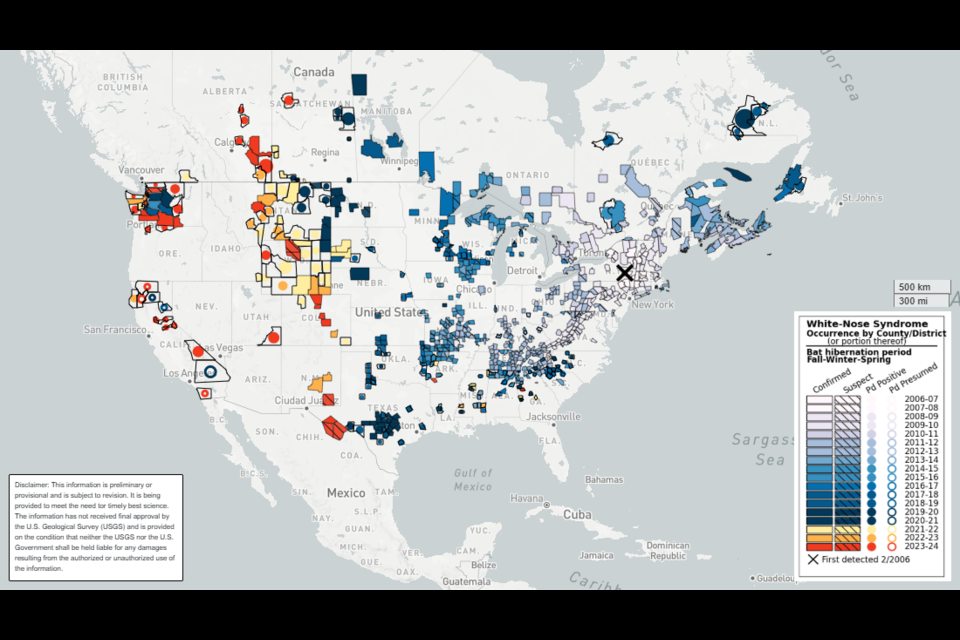Omineca Bats is a Prince George-based program that operates under the Community Bats Program of BC.
The group is asking locals for help in preventing a deadly disease that has affected bats all over the country.
White nose syndrome (WNS) has been ravaging multiple species of bats all across North America, Europe and Asia.
The disease spreads fungus which attacks bats while they are hibernating. It then grows on their faces to give the appearance of a white nose. Bats often wake to clean the fungus from their skin. This uses valuable energy, and eventually, the bats can die from starvation.
“Across North America, millions of bats have been killed, and seven of our 15 BC species could be severely affected by the disease,” says Tina Watters, Omineca co-ordinator for the BC Community Bat Program. "The little brown myotis and the northern myotis are both listed as endangered in Canada due to WNS. Though there is not yet a proven cure for WNS, several promising treatment options are being developed, and it may be possible to mitigate the effects of this wildlife health crisis.”
While the disease has yet to impact BC, the disease was reported in the boundary region, in 2022. However, the BC Ministry of Water, Land, and Resource Stewardship released results from 413 samples taken last winter and spring, and they all came back as negative.
“This was surprising, but great news, as bats with WNS have been confirmed in Alberta and in northern Washington State, just south of the border,” says Watters.
This disease was first detected in 2006 in New York state. It is not transmittable to humans or other animals, only bats.
Despite this, humans will certainly feel the effects of this disease as bats are an essential part of the local ecosystem, Watters says.
“The bats of BC are key predators of many night-flying insects. They provide a huge economic benefit by helping control agricultural, forest, and urban pests,” says Watters.
If you find a dead bat or have a winter bat sighting, the Community Bat Program urges you to leave the bat alone and keep your distance. However, if you must move the bat it is advised you wear gloves and keep the bat away from pets or other wildlife
In addition, report any winter sighting or bat carcass to the BC Community Bat Program online at www.bcbats.ca, via email at [email protected] or by calling 1-855-922-2287 ext.26


